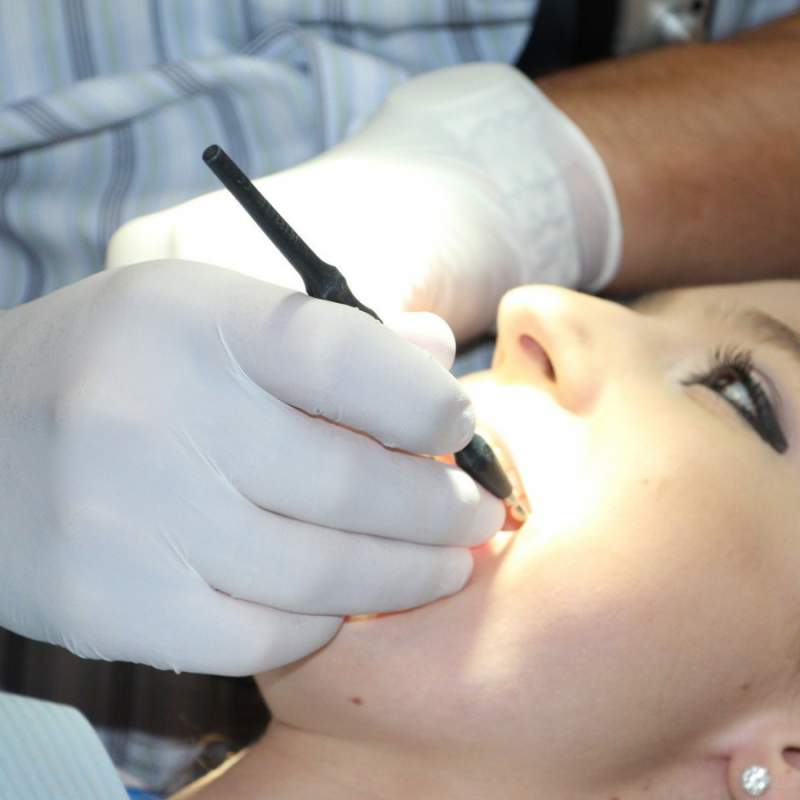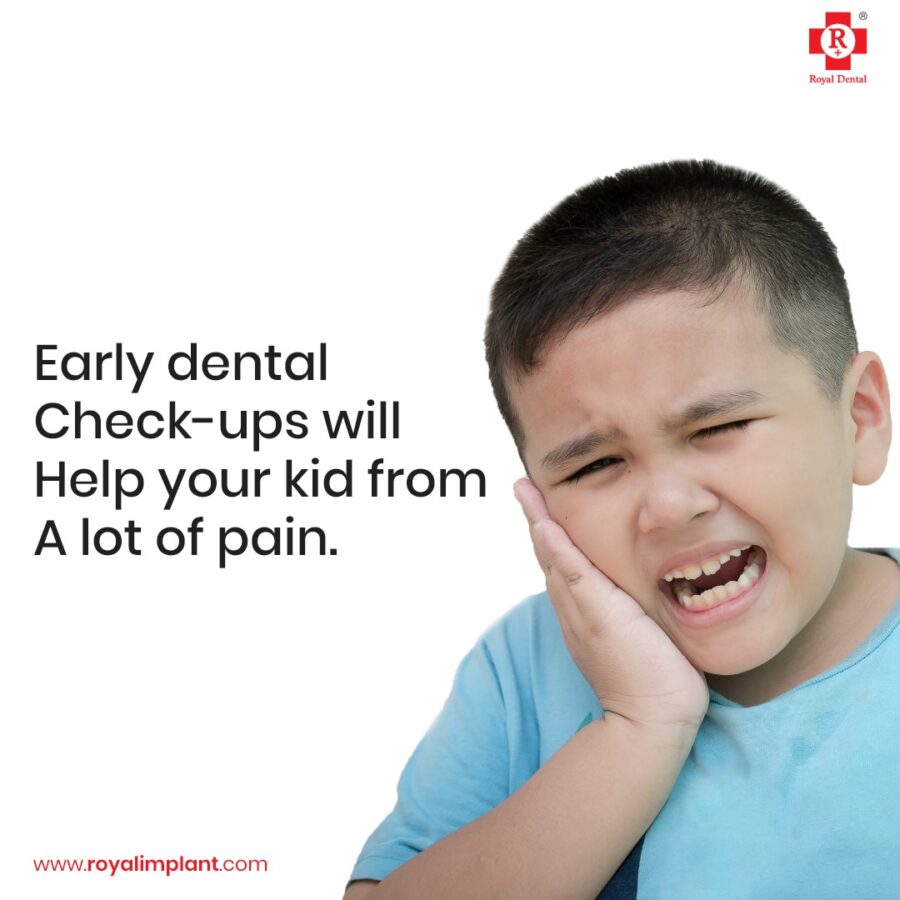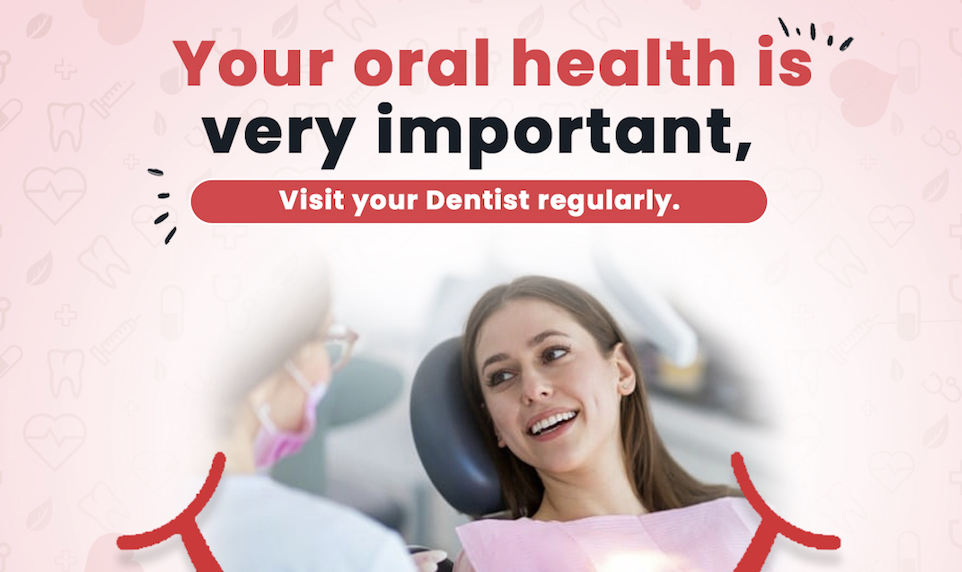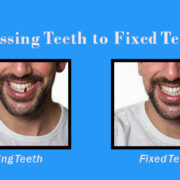A dental check-up is an appointment with your dentist that helps you maintain healthy teeth and gums. The frequency of your checkups will depend on your risk factors, personal habits, and recommendations from your dentist. Depending on these factors, checkups could happen once a year or every six months. But no matter how often you go, it’s important to stay on track with regular dental check-ups to catch cavities early or prevent them before they start. Check-ups are an essential part of maintaining good oral health. They provide dentists with the opportunity to identify and address potential issues before they become major problems. On top of that, they help build trust between patients and their providers by exposing any red flags before they turn into larger concerns down the road.
How often you should go for a dental check-up?
A dental check-up is a general overview of your oral health that’s often done annually or every six months. However, this isn’t a one-size-fits-all schedule. Your risk factors, personal habits, and your dentist’s recommendations will all determine how often you should go. If you have certain conditions, such as diabetes or gum disease, you may need to go for a dental checkup more frequently.

Likewise, if you practice good oral hygiene, you may not need as many checkups. If you’re unsure how often you should go for a dental checkup, you can speak to your dentist. They can let you know what’s normal for your situation and give you a better idea of what to expect from each appointment.
Why you should always go for a dental checkup
- Cavities – Cavities are small pockets of bacteria that can cause significant damage, including toothaches and possibly tooth loss. They’re most often caused by poor brushing and flossing habits, so they can be easy to prevent with the right tools and techniques. A dental checkup can help you catch cavities early, giving you more time to address them before they become more serious.
- Gum Disease – Gum disease is a bacterial infection that can cause your gums to become red, swollen, and tender. While it can be treated, it’s important to catch it early. A dental checkup can help you detect it before it becomes more serious and spreads to other areas of your body.
- Bad Breath – Bad breath is a sign of underlying issues, including cavities and gum disease. A dental checkup can help you identify these underlying causes so that you can address them before they become major problems.
- Tooth Wear and Breakage – Tooth wear and breakage often go unnoticed until it’s too late. A dental checkup can help you detect these issues before they cause significant damage.
- Root Canal – Root canals are often the last resort when tooth decay reaches the pulp inside. A dental checkup can help you detect this issue early, giving you more time to address it before it becomes a bigger problem.
- Oral Cancer – Oral cancer doesn’t have many warning signs, making it essential to catch it early. A dental checkup can help you identify the signs of oral cancer before they turn into a more serious situation.
More reasons for a Dental check-up visit
- Wisdom Teeth – Wisdom teeth are often removed if they’re unable to fully erupt. A dental checkup can help you identify this issue before it becomes more serious.
- Implants – Implants are a common solution for missing teeth. A dental checkup can help you identify any issues with your gums that could affect the placement of your implants.



- Bone Loss – Bone loss can occur when teeth are missing, which could make it difficult to place implants. A dental checkup can help you catch bone loss early, giving you more time to address it before it becomes more serious.
- Topical Treatments – If you’re undergoing chemotherapy or taking antibiotics, you may need a topical treatment to prevent gum disease. A dental checkup can help you identify this condition early, giving you more time to address it.
- Swallowing Issues – Swallowing issues are common side effects of certain medications. A dental checkup can help you catch these issues early, giving you more time to address them before they become more serious.
- Dentures – Dentures should be replaced every six months, but many people don’t take them out as often as they should. A dental checkup can help you identify this issue early, giving you more time to address it before it becomes a more serious problem.
- Your Dentist – Your dentist wants you to have healthy teeth, and the only way to do that is to get them checked out. A dental checkup can help you identify issues early and give you more time to address them before they become major problems. The earlier you catch them, the easier they are to treat.
6 Months of dental check-up
A six-month dental checkup will help your dentist identify cavities and gum disease before they have a chance to become more serious. This is especially important if you have risk factors, such as diabetes or heart disease. Those with these conditions have a higher risk of gum disease, which is more likely to spread to other areas of your body. Your dentist can also catch other issues, including oral cancer, tooth wear and breakage, and problems with your dentures.
A six-month dental checkup is important for anyone looking to maintain good oral health. If you have risk factors for gum disease, you may want to consider a six-month dental checkup as a minimum. If you don’t have any risk factors, you may be able to get away with an annual dental checkup instead. Your dentist can help you determine what’s best for your situation.
3 Months of dental check-up
A three-month dental checkup will help your dentist identify cavities and gum disease before they have a chance to become more serious. This is especially important if you have risk factors, such as diabetes or heart disease. Those with these conditions have a higher risk of gum disease, which is more likely to spread to other areas of your body. Your dentist can also catch other issues, including oral cancer, tooth wear and breakage, and problems with your dentures.

A three-month dental checkup is important for anyone looking to maintain good oral health. If you have risk factors for gum disease, you may want to consider a three-month dental checkup as a minimum. If you don’t have any risk factors, you may be able to get away with an annual dental checkup instead. Your dentist can help you determine what’s best for your situation.
1 Month dental check-up
A one-month dental checkup will help your dentist identify cavities and gum disease before they have a chance to become more serious. This is especially important if you have risk factors, such as diabetes or heart disease. Those with these conditions have a higher risk of gum disease, which is more likely to spread to other areas of your body. Your dentist can also catch other issues, including oral cancer, tooth wear and breakage, and problems with your dentures.
A one-month dental checkup is important for anyone looking to maintain good oral health. If you have risk factors for gum disease, you may want to consider a one-month dental check-up as a minimum. If you don’t have any risk factors, you may be able to get away with an annual dental checkup instead. Your dentist can help you determine what’s best for your situation.
Bottom line
Regular dental checkups can help you catch and address any issues before they become major problems. They’re an essential part of maintaining good oral health and can help you prevent future issues before they start. If you’re unsure how often you should go for a dental checkup, speak to your dentist. They can let you know what’s normal for your situation and give you a better idea of what to expect from each appointment.






